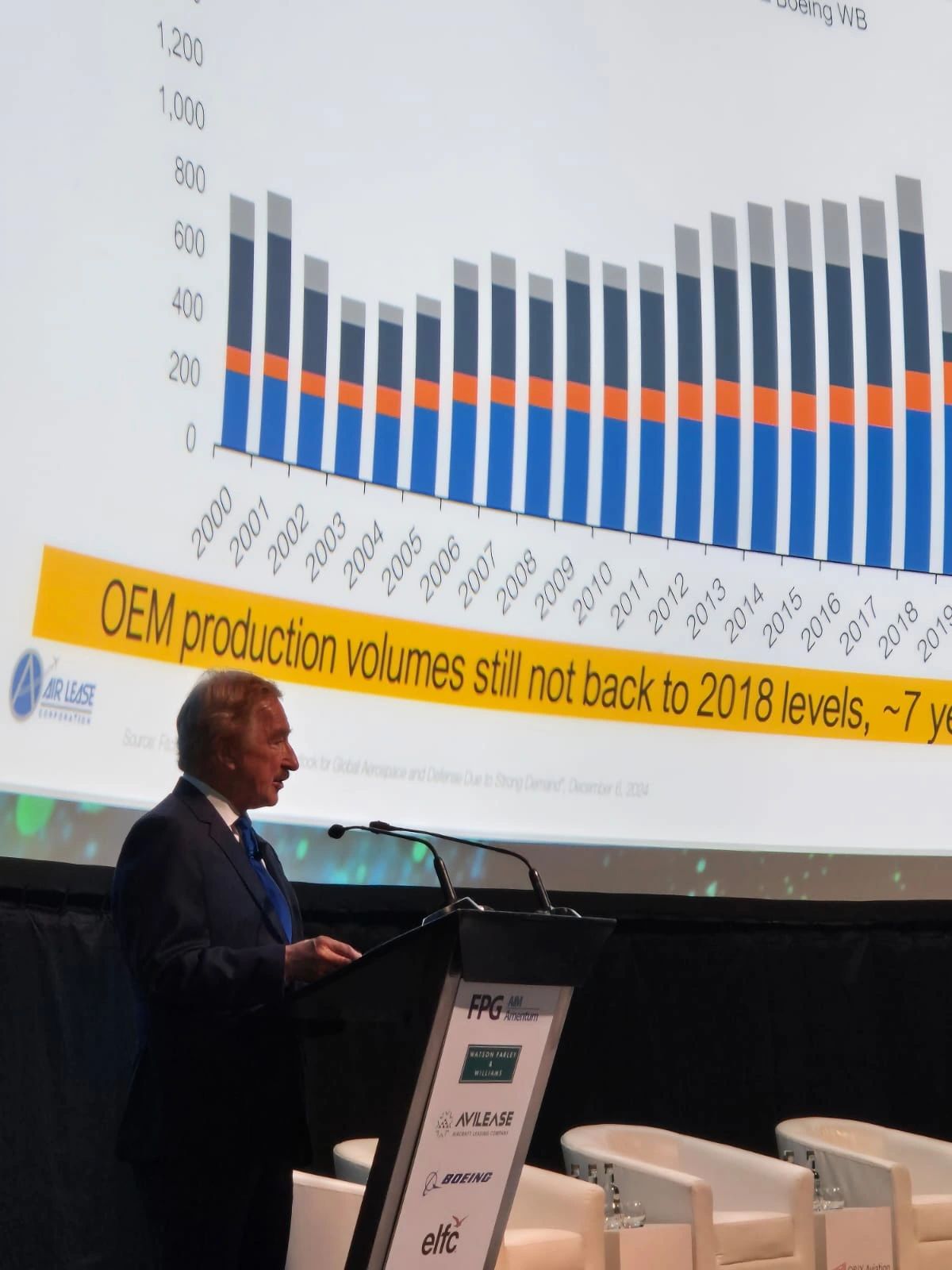The aviation industry faces “unprecedented” financing needs, requiring $600bn over the next six years, with half of that expected to come from the leasing sector, Air Lease Corporation (ALC) executive chairman Steven Udvar-Házy said on January 13, 2025.
Speaking at the Airline Economics Growth Frontiers Dublin 2025 conference, Udvar-Házy emphasised the role lessors will play in meeting the industry’s funding requirements, in the face of growing demand for fleet renewal and expansion by airlines around the world.
The ALC chairman noted that airline traffic will “grow and stabilise” in 2025, continuing a positive trend from 2024, which recorded a nearly 14% passenger growth compared to the previous year.
Despite this increase in demand, Udvar-Házy highlighted ongoing challenges for original equipment manufacturers (OEMs) such as Airbus and Boeing, which continue to struggle with meeting delivery targets.
“We have experienced persistent supply chain bottlenecks and OEM delays. As the launch customer of the A321XLR, all of our deliveries for this aircraft are more than 18 months late,” he said. “With these aircraft already placed on long-term leases, the delays have a significant impact on us and our customers.”
Production rates remain significantly below pre-pandemic levels, with OEM output in 2024 being approximately half of 2018’s peak levels
“737 production rates are struggling to recover and remain at half the level seen seven years ago. Boeing is managing to produce only five 787 aircraft per month, down from ten previously. Additionally, Airbus’ A321neo faces no competition due to delays in certifying Boeing’s MAX 10,” Udvar-Házy added.
These delays have forced airlines to wait up to six years for new aircraft deliveries, leading to unanticipated changes in asset values and operational challenges.
Aircraft values and lease rates are also increasing amid a persistent aircraft shortage. Airlines are being forced to slow down fleet retirements and adapt to ongoing delays.
In addition to OEM delays, Udvar-Házy expressed frustration with Europe’s “antiquated” air traffic control (ATC) system, which he described as another major challenge for carriers entering 2025.
“Very little progress has been made, with only micro-steps taken to address the problem,” he said. “EUROCONTROL departure and arrival delays caused by airspace factors average 34 minutes per flight, according to recent reports. ATC systems are 20-25 years behind where they should be today.”
Udvar-Házy further emphasised that ATC modernisation should be a “paramount” priority for governments and regulatory bodies.
ALC’s current orderbook includes 54 A220-300s, 134 A320neo-family aircraft, a mixture of 72 737-8 and 737-9 jets, three A330-900s, 17 787s, and seven A350F freighters.

